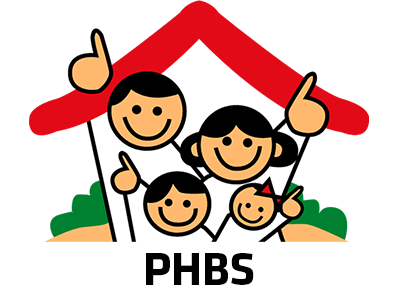Education on Clean and Healthy Living Behavior for Children with Special Needs at the Bhakti Luhur Ende Orphanage
Edukasi Perilaku Hidup Bersih dan Sehat Pada Anak Berkebutuhan Khusus Di Panti Asuhan Bhakti Luhur Ende
Keywords:
Children with Special Needs, Education, Clean and Healthy Living BehaviorAbstract
Bhakti Luhur Orphanage is one of the orphanages in Ende Regency, which is inhabited by children with special needs (ABK). The results of a preliminary survey conducted through observation and interviews with the orphanage administrators obtained information that the orphanage administrators had instilled clean and healthy living habits in the children in the orphanage, but because of the condition of the children with special needs, special and extra attention is needed in clean and healthy living behavior. The caregivers, despite all the limitations that exist, sincerely want to care for children who are not only outwardly normal but also have physical and mental limitations. The purpose of this community service activity is to provide a correct understanding of personal hygiene, washing hands with soap and environmental cleanliness. The methods used in this community service are lectures, questions and answers, games and direct practice in the orphanage environment. The results of community service activities after being given counseling and practicing hand washing, some of the ABK were able to answer the short questions given correctly. In addition, from the results of the checklist containing the stages of washing hands properly and correctly, most ABK had practiced the stages properly and correctly. Conclusion: From the evaluation results, it was found that the knowledge and implementation of clean and healthy living behavior of children in orphanages had improved. Therefore, this service is an effort to improve PHBS for children with special needs who live in orphanages so that both in the orphanage environment and wherever they are, PHBS can always be applied as a daily habit
References
Departemen Sosial RI, 2004. Panduan Umum Kesejateraan Sosial Anak. Jakarta : Depsos RI
Kemenkes RI. (2016). Pedoman Pembinaan Perilaku Hidup Bersih dan Sehat (PHBS). Jakarta: Kementrian Kesehatan RI. https://bphn.go.id/data/documents/11pmsos030.pdf
Kementerian Kesehatan RI. 2018. Hasil Riset Kesehatan Dasar (Riskesdas) 2018. Jakarta: Badan Penelitian dan Pengembangan Kesehatan Kementerian RI., https://repository.badankebijakan.kemkes.go.id/id/eprint/3514/1/Laporan%20Riskesdas%202018%20Nasional.pdf
Kemenkes RI. (2019). Pedoman Pembinaan Perilaku Hidup Bersih dan Sehat (PHBS). Jakarta: Kementrian Kesehatan RI, https://ayosehat.kemkes.go.id/pedoman-phbs
Mulasari, dkk (2021), Modul Pengabdian Masyarakat Perilaku Hidup Bersih Dan Sehat, Fakultas Kesehatan Masyarakat, Cetakan I, Universitas Ahmad Dahlan Yogyakarta, Cv Mine, https://eprints.uad.ac.id/52894/2/FIX%20BUKU%20HIDUP%20BERSIH%20DAN%20SEHAT%20REV%202.pdf
Notoatmodjo, Soekidjo. (2010). Ilmu Perilaku Kesehatan. Jakarta: Rineka Cipta.
Ratnasari, Desi. 2013. Pengembangan Macro Media Flash dalam Pembelajaran Matematika untuk Anak Berkebutuhan Khusus (ABK) Kelas VIII di sekolah inklusi. Skripsi tidak diterbitkan. Malang: UMM, https://ejournal.unib.ac.id/index.php/j_consilia
Undang-Undang Republik Indonesia Tahun 2017 tentang Kesehatan, https://peraturan.bpk.go.id/Details/112031/permenkes-no-23-tahun-2017

Downloads
Published
How to Cite
Issue
Section
License
Copyright (c) 2025 Jurnal Abdimas Poltekkes Kupang

This work is licensed under a Creative Commons Attribution-NonCommercial-ShareAlike 4.0 International License.




